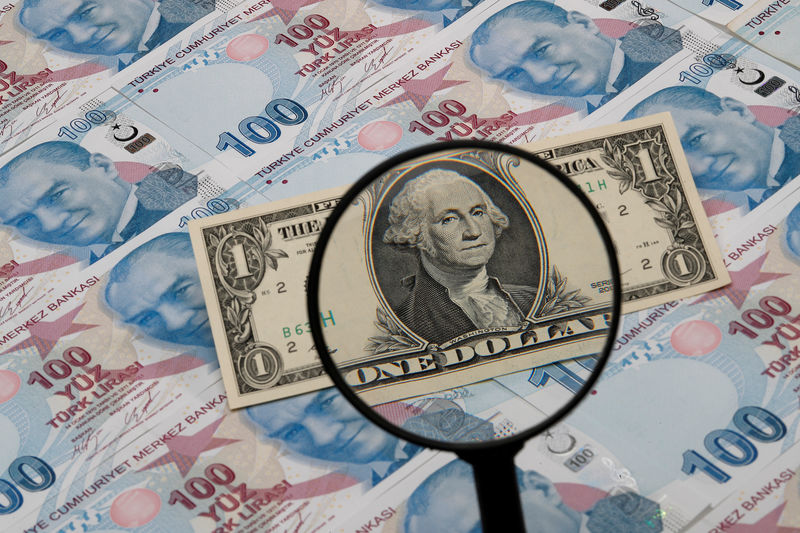By Geoffrey Smith
Investing.com -- The dollar eased against high-yielding currencies but advanced against the yen in early European trading on Thursday, as the market absorbed the implications of Wednesday higher-than-expected inflation data out of the U.S.
By 3 AM ET (0700 GMT), the Dollar Index that tracks the greenback against a basket of developed market economies was down 0.1% at 93.995, trading below 94 for the first time this week as sterling and the Canadian, Aussie and New Zealand dollars all advanced.
The dollar’s only notable gains were against the yen, where it rose another 0.3% to 113.53, supported by ever stronger expectations of a widening interest rate differential with Japan.
The U.S. inflation rate hit a fresh 13-year high of 5.3% in September while core inflation stayed at 4.0% thanks only to a sharp drop in air fares. Three senior Federal Reserve officials – Raphael Bostic, Mary Daly and Thomas Barkin – will have the opportunity to give their two cents’ worth on the developments in the course of the day. Minutes from the Fed's latest policy meeting, released on Wednesday, cemented expectations that the Fed will announce the start of the withdrawal of stimulus at next month.
U.S. weekly jobless claims, due at 8:30 AM ET (1230 GMT) head the day's economic calendar.
In emerging markets, the dollar surged to a new record high of 9.1872 against the Turkish lira, after President Recep Tayyip Erdogan fired three deputy central bank governors, further undermining its independence and anti-inflation credibility. The dismissals included the only member of the CBRT’s decision-making council to vote against its shock interest rate cut in September, which happened against a backdrop of near-20% inflation.
The Chinese yuan edged lower after producer price inflation rose to a 26-year high at 10.7% in September, above expectations. China is one of few countries for whom an easing of monetary policy is on the table as it grapples with an ongoing credit crunch in real estate. The official yuan fixing of 6.4414 was the highest in nearly a month.
Further inflationary pressure is in the pipeline for China’s factories after the government allowed industrial electricity prices to rise to ease the pressure on the country’s utilities earlier this week.
The Chilean peso came off a 17-month low against the dollar after the country’s central bank raised its key rate by a chunky 125 basis points to 2.75%, more than the 100 basis point rise expected.
